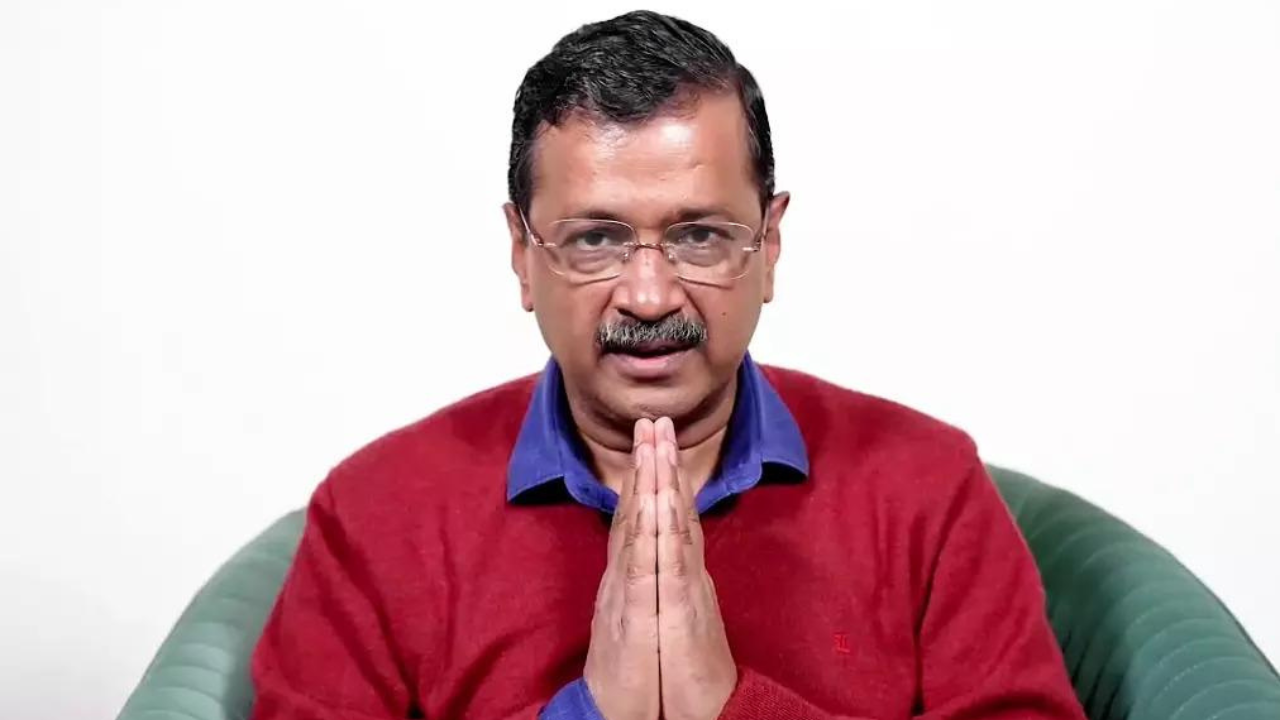EC may not press matter of Kejriwal's allegation of 'poisoned' Yamuna

NEW DELHI: The Election Commission is unlikely to press further with the matter relating to former Delhi chief minister Arvind Kejriwal 's charge that Haryana govt had released "poisoned" Yamuna waters to Delhi with an intent to cause "genocide", with a criminal FIR and a court case already filed against him in Haryana.
The EC had nothing to do with filing of the two separate cases in Haryana. While one FIR was registered against Kejriwal by the Haryana police, on the court's order, at Shahabad police station in Kurukshetra under various sections of the Bharatiya Nyaya Sanhita (BNS), another case was filed earlier before a Sonipat court on behalf of the Haryana State Disaster Management Authority, seeking the Kejriwal's prosecution under provisions of the Bharatiya Nyaya Suraksha Sanhita (BNSS), Disaster Management Act and the BNS.
Sources said while the EC is of the view that provisions cited in its January 29 notice to Kejriwal -- BNS Section 196 (statements that promote enmity between groups), Section 197 (imputations prejudicial to national integration), Section 353 (public mischief); Section 123(4) of Representation of the People Act, 1951; and the model code of conduct -- were indeed violated by his "poisoning" claim, making him liable to criminal action, there is also unanimity within the commission that with the court proceedings and a criminal investigation already underway in Haryana and with the Delhi polls now concluded, it would be best for the poll panel to step aside and let the law take its course.
Indications that EC may not go overboard against Kejriwal -- notwithstanding the personal attacks unleashed by him against chief election commissioner Rajiv Kumar, accusing the latter of angling for a post-retirement job and and even "mortgaging the country" -- had come in the commission's recent posts on X. On February 4, EC took to X to state that it had chosen to exercise "constitutional restraint, absorbing such outbursts with sagacity, stoically and not to be swayed by such insinuations", which it termed as "deliberate pressure tactics being employed to malign the poll body as if it were a single-member body". Just a few days earlier on January 31, EC had assured that it would take a decision in the matter relating to Kejriwal's "poisoning" allegations after examining his reply "on merit" and "without getting swayed by personal insinuations and offensive strategy in play".
A senior EC functionary pointed out that the Commission, led by the CEC himself, had patiently heard Kejriwal on multiple occasions during Delhi polls, including during the silence period, on various matters including his "poisoning" allegations. By the time it could examine Kejriwal's reply to its pinpointed questions on the "poisoning" charge, last-minute poll preparations followed by the silence period had kicked in. It did not feel right to the EC to initiate proceedings or action against Kejriwal in the middle of the silence period, said a source.
Also busy thereafter with overseeing the counting preparations and, finally, with the results out on Saturday, the EC, in the light of a criminal investigation by the Haryana police and the pending court hearing in Sonipat on February 17, has decided not to take matters urther at its end.
All the BNS sections cited in the FIR registered against the AAP national convenor in Kurukshetra invite a minimum jail term of three years, or fine, or both. Meanwhile, the court of chief judicial magistrate, Sonepat -- which is seized of the case filed under the Disaster Management Act -- has already issued a notice to Kejrwal while fixing the next date of hearing on February 17.
Next Story